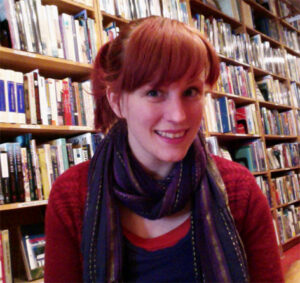By Bethany Morrow
 To be honest, I’m nervous about writing and sharing this blog post. I’m worried I’ll write something that makes my naivete obvious to everyone but myself. I’m worried I’ll say something hurtful in ignorance, or that I’m perpetuating societal oppression without realizing it. Still, this feels like an important topic to discuss: Privilege.
To be honest, I’m nervous about writing and sharing this blog post. I’m worried I’ll write something that makes my naivete obvious to everyone but myself. I’m worried I’ll say something hurtful in ignorance, or that I’m perpetuating societal oppression without realizing it. Still, this feels like an important topic to discuss: Privilege.
As a young, white, American, able-bodied, non-Christian, bisexual woman, I’ve experienced a mix of privilege and oppression. These past few weeks in Poetic Justice Theatre Ensemble rehearsal, we have explored the topics of unwanted sexual attention, power and consent, in preparation for a potential forum play. Everyone in the ensemble – female and male, young and old – has had personal stories to share. It’s a huge issue, full of huge stories that I couldn’t possibly summarize, but I am struck by two impressions:
- Everyone, regardless of gender or sex, has felt pain and powerlessness at having had their physical boundaries violated by strangers and non-strangers.
- Compared to the men in our ensemble, the women in our ensemble have had many, many more experiences of their boundaries and physical safety having been violated.
And that’s just how it is. Everyone, regardless of being part of a majority or minority class, experiences personal grievances. These experiences are legit, they can be immensely painful, and they deserve attention. But there is a fundamental difference between personal grievances and societal oppression. (To read more about the difference, check out this great article.) The men in our ensemble all shared stories of witnessing or experiencing sexually-based violation, but every woman in our ensemble had hundreds (if not more) of personal experiences. In this case, the men were recounting legitimate, painful personal grievances, but the women were dealing with oppression on a pervasive, societal scale.
The same is true for other class differences. For example, yes, I have been mistreated because of the color of my skin, but those have been isolated incidents – not pervasive oppression. I am never watched with suspicion when I walk into a shop. I cannot remember ever having heard a violent slur against my race or nationality. I am not reminded, on a daily basis, that I look different from the people around me. On a societal level, I am not mistreated, overlooked, or otherwise discriminated against because of the color of my skin.
All in all, I feel quite privileged. I have always had easy access to food, clean water, shelter, comfort and education. I do not have to consider how to maneuver through every building. I am not dismissed by society because of my age or mental disability. Despite the oppression I continue to experience as a woman, a bisexual person and a non-Christian, I generally feel powerful, capable of standing up for myself and safely making my way through the world.
This brings me to perhaps the most important lesson I have learned in my three years as a member of the Poetic Justice Theatre Ensemble:
As I move through the world, I must try to hold an awareness of the many ways in which I am privileged. It is easy for me to be welcoming and kind to people of diverse qualities, but it is equally easy to be unaware of the impact my words and actions might have on others who do not share my particular privileges. One of the most insidious privileges of being privileged, is the freedom to not recognize my privilege.
In Playback Theatre and in real life, it is my duty to listen deeply when people mention the oppression they experience. It is my duty to include, consider and learn from others, even when it requires me to examine uncomfortable parts of myself. It is my duty to speak out against injustice, but also to ask how I can help before assuming I know “what is best” for people of a different body suit. For example, whether in real life or in a forum play, a solution that works for me, as a young white person, may not work for a teen, an elder or a person of color.
I don’t have all the answers. I still don’t always react the way I would like, or as quickly as I would like, when I witness social injustice. I know there are numerous ways in which I am still unaware of my vast privilege, and that in ignorance I help perpetuate oppression. But practicing Theatre of the Oppressed and Playback Theatre, learning from our director, other ensemble members and our audiences, I have begun to learn what it means to be an effective ally. I am so grateful for the opportunity to learn and practice anti-oppression work. Being part of the ensemble has opened my eyes.
Bethany Morrow is a social practice artist, teacher, designer and event coordinator, and a former member of the Poetic Justice Theatre Ensemble.
